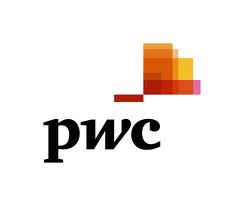Don't Ask Millennials To Participate In Traditional Check-The-Box Employee Giving Campaigns
Don't ask millennials to participate in traditional check-the-box employee givi…
Heather Lofkin Wright is the US Director of Community Service at PwC. Heather focuses on developing strategies and corresponding programs to help busy people give back in easy and meaningful ways that grow the firm’s sustainable culture of giving. In her three-year tenure in this role, PwC’s Charitable Giving Campaign has doubled in number of participants and dollars raised, and the firm’s volunteer hours have grown three-fold.
As the US Director of Community Service for PwC, my goal is to create meaningful ways for people to give back; opportunities that make them feel good about their contribution while making an impact in the community and shaping the story of the collective generosity of our PwC people. You might then question my sincerity (or sanity) when I tell you to stop asking millennials to fill out pledge forms.
But here’s the thing: It isn’t the ask that needs to go away, it’s the way you are positioning the question that needs to change.
Our PwC millennial workforce studies repeatedly demonstrate that today’s young adults place high importance on corporate responsibility, with over half reporting in the most recent study that they would consider leaving an employer whose values no long matched their own. Yet America’s Charities 2013 giving culture survey saw participation in workplace giving dropping from an average of 41% of employees in 2006 to 33% in 2012. The desire to give back and make a difference is there, so why the decline in participation? Corporate community strategy has to evolve from a check the box activity to an invitation to contribute to the community in a personally fulfilling way−only then can you achieve a sustainable giving culture.
We celebrate diversity at PwC and recognize that 39,000 different people may care about 39,000 different charitable organizations. They also give back in different ways – when, where, and how it meets their own needs. In our recent CEO Survey, over 50% of CEOs cited changing consumer behaviors as a concern for 2014. If you think donors and volunteers aren’t consumers, you don’t know your audience.
On both individual and institutional scales, today’s philanthropists are not donating their time and money; they are investing it in their community, in their personal development, in their professional network and in their reputation. So if pledge cards have gone the way of the typing pool, how are millennials giving back and how do you engage them?
1) Choice: by providing these consumers with over one million charities, thousands of volunteer events, pro bono and board seat opportunities, there is something for everyone.
2) Impact: look at the success of models for online giving that enable you to “shop” your donation – instead of asking consumers to throw their money in a pot and blindly accept that they are making a difference, these platforms are able to tell you exactly what you will get when you choose an individual project to fund. We Corporate Social Responsibility professionals are increasingly on the line to demonstrate impact to attract participants – and that means so are NPOs.
3) Collaboration: survey respondents who participated in PwC’s 2013 Charitable Giving Campaign cited “being a part of our collaborative impact” as the number one reason they give back through the firm.
4) Thanks: a pile of tax receipts can’t hold a candle to a hand written thank you note from a child, paid time off to volunteer, or a report on the generosity of your workforce.
5) Ease: to compete for space on people’s to do lists, charitable giving and volunteering must utilize the same innovations as top retail and electronic invitation sites to put giving-back literally at people’s fingertips and minimize barriers to signing up.
6) Camaraderie: opportunities that promote and enable an organic spirit of familiarity and trust between co-workers should not be overlooked. The PwC Charitable Foundation is powered by donations from our PwC people. They give because they know that their donation makes it possible to provide direct, emergency aid to PwC colleagues who experience unexpected financial hardship, and helps to fund the “Dollars for Doers” program, which makes grants to the charities where they volunteer their time.
And in case you hadn’t guessed it, we aren’t talking only about millennials here. Who doesn’t want choice, impact, collaboration, thanks, ease and camaraderie? By listening to the changing landscape of how people give back, we can grow our participants, increase impact, and in turn, inspire others to join us. Whether through time, dollars, or skills, I’m continually impressed by our people’s generosity and look to continue to evolve our approach to sustain our commitments over time.

